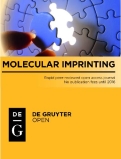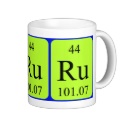|
|
Reference type: Journal
Authors: Sainz-Gonzalo FJ, Medina-Castillo AL, Fernández-Sánchez JF, Fernández-Gutiérrez A
Article Title: Synthesis and characterization of a molecularly imprinted polymer optosensor for TEXs-screening in drinking water.
Publication date: 2011
Journal: Biosensors and Bioelectronics
Volume: 26
Issue: (7)
Page numbers: 3331-3338.
DOI: 10.1016/j.bios.2011.01.008
Alternative URL: http://www.sciencedirect.com/science/article/B6TFC-52079W2-1/2/9cd00921b320bdf1b092c9958f3ff9ce
Abstract: A molecularly imprinted polymer (MIP) was synthesized using toluene as template, and was implemented in a fluorescence optosensor (λexc = 260 nm, λem = 284 nm) for the screening of TEXs (toluene, ethylbenzene and xylenes) in drinking water. All the parameters which can affect the sensitivity and selectivity of the optical sensing phase, were carefully optimized. The screening test runs without the need for any pre-concentration step, thus rendering it suitable for routine use in water-quality-control laboratories. The test recognizes contaminated samples rapidly (81 s) and inexpensively with a cut-off level of 700 μg L-1 ethylbenzene which corresponds with the maximum contaminant level (MCL) established by US Environmental Protection Agency (EPA) in drinking water. The threshold value of the screening test for the cut-off level was 8.27 x 0.57 a.u. (95% confidence level, n = 10). The reliability of the screening test was 32% false positives and 0% false negatives for 50 samples, and its applicability has been demonstrated by analyzing 15 samples of mineral, tap and river waters obtaining 0% false negatives
Template and target information: toluene, TEX, ethylbenzene, xylenes
Author keywords: molecular imprinting, Fluorescence optosensor, TEXs, Flow analysis, Screening test, water analysis
|


 SMI logo mousepad pink tiled
SMI logo mousepad pink tiled







 SMI logo mousepad orange
SMI logo mousepad orange







 Element 44 mug - Ruthenium
Element 44 mug - Ruthenium






